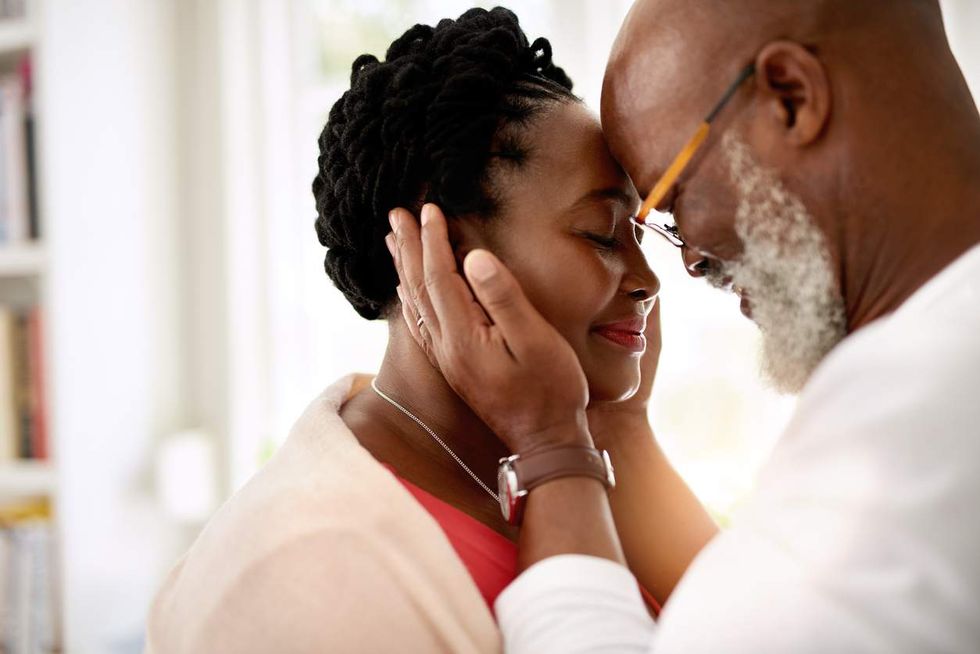
You might be wondering why an article on prostate cancer is in a women’s health publication. It’s because prostate cancer is common — and many women know and love people with prostates.
The good news is that even though prostate cancer is one of the most common types of cancer, it’s also highly treatable. In fact, when caught early, the survival rate is 99%. That’s a huge incentive for early detection.
But how many men do you know who take proactive steps for their own health?
It’s not just the men you know. A national study conducted by The Cleveland Clinic showed that 3 out of 5 men would rather do chores than seek medical care, and only half of the men surveyed said they consider getting an annual check-up a regular part of taking care of themselves.
That’s where women come in. “It’s important to acknowledge upfront that we live in a culture where women are expected to be caregivers,” said Vanessa Walker, a two-time breast cancer survivor, patient advocate and founding leader of Women’s Health Advocates.
As the primary caregivers, women can play a big role in their partner’s prostate health. And it’s a role that can begin before a health issue becomes a crisis.
Prostate cancer screening
The prostate is a male reproductive organ: a small, semen-making gland that sits below the bladder. The risk of getting prostate cancer increases with age, especially after you’re 50. Black men have a higher risk than white men, while Asian American, Hispanic and Latino men have a lower risk than non-Hispanic white men. Having a father or brother with prostate cancer more than doubles a man’s risk, and the risk increases when more relatives are diagnosed. That’s a huge incentive for early detection.
For men with fewer risk factors, screening generally begins at age 50. A general practitioner will include screenings at regular checkups that often include a digital exam — yes, this means a doctor will insert their finger into the rectum for a moment — and a blood test called the prostate-specific antigen (PSA). The PSA test measures a protein enzyme produced by the prostate. If higher-than-normal levels of this enzyme are found, that doesn’t necessarily indicate cancer is in the prostate. More tests would be ordered to make that determination.
In general, the American Urological Association recommends using a PSA as a first screening test every two to four years for men with average risk, but it also strongly encourages shared decision-making to determine what’s right for each individual.
Read: How Shared Decision-Making Can Lead to Better Healthcare >>
Prostate cancer symptoms to be aware of
Since we know that men aren’t often proactive about their health, it’s a good idea for women to be aware of the symptoms of prostate cancer — and also let the men they care about know. If you or your partner have been noticing your partner having symptoms of prostate issues, encourage them to ask their healthcare provider (HCP) about them.
Symptoms of prostate cancer include:
- The need to urinate more often, especially at night
- Erectile dysfunction
- Pain in the hips, back (spine), chest (ribs) or other areas
- Bladder control problems
- Unexplained weight loss
- Fatigue
It’s important to note that these symptoms can also be symptoms of other conditions.
Having uncomfortable conversations

Some of the symptoms of prostate cancer might be hard to talk about, especially if there are sexual issues involved, like erectile dysfunction. But having these conversations could make a huge difference in your partner’s health.
Women can help break down the stigma by merely acknowledging that these issues may be tough to discuss. “We can also break down the stigma for the next generation if we have sons,” said Walker. “Start early and make it normal to talk about our bodies and health.”
How to approach your partner
“Let’s face it, the last thing women need is more responsibility. We can make it easy for our families to make good choices around preventive care and screening, but we can’t make choices for them. What we can do is have conversations that encourage our partners to take ownership of their prostate health,” Walker said.
If your partner isn’t in the habit of getting annual physicals, these conversations may meet less resistance if you approach the subject with curiosity and lose the word “should,” said psychologist Marni Amsellem, Ph.D. “When people hear the word should, they feel judged. They’re not on the same team anymore. The word ‘could’ invites buy-in. … Instead of saying, ‘You should go to the doctor,’ try asking, ‘Could you start talking to your doctor about your prostate, or any issues with aging?’”
A direct but sensitive approach is always a good route to take. Walker said she and her husband strive to have “open, honest, difficult conversations,” but sometimes a partner’s encouragement can be interpreted as nagging.
“If he gets annoyed that I’m needling him about getting the PSA test, that’s an opportunity for me to say: Hey, I sense you’re annoyed. My intention is not to nag you. Are you interested in hearing more about why this is important to me, and how it can be important to you?”
According to Walker, most people want the people they love to be the healthiest possible versions of themselves. “We can’t make choices for them, of course,” said Walker. “We can tell them what we want and then ask what they want. I want to let my partner know I’m coming from a place where I love him, I care about him, and he’s my best friend.”
This educational resource was created with support from Bayer and Merck.
